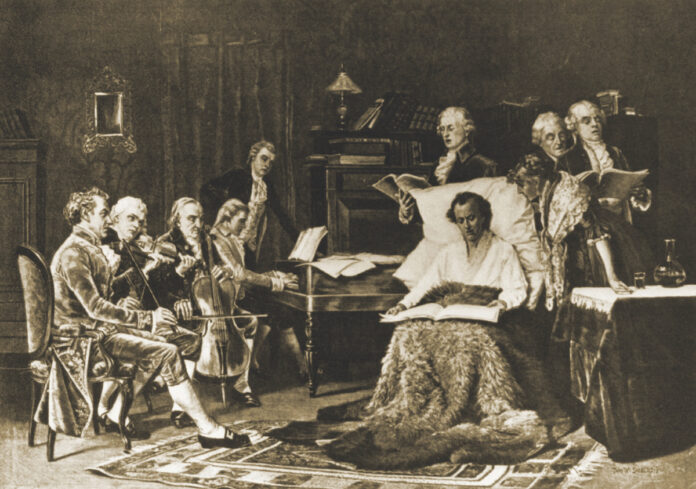When we’re in crisis, lost in the forest, deep in our own personal hell, it seems impossible to get out.
Our nights are spent in sleeplessness and catastrophizing worry, our days in despondency. We know what we could be doing, what we ought to be doing, but we cannot summon an ounce of will to act. Nothing seems to matter, nothing will do any good, nothing will change things. And so we keep brooding, trapped in a negative feedback loop in which A gets us B, which gets us more A. And around and around we go.
To break the cycle and find our will to do things again, we need to shatter the illusion of what we think it means to will and to do. The beginning of this inner realization comes from an understanding of the difference between acting and reacting.
We are living through the end stages of a long cosmic cycle, the time when people are the farthest from metaphysical reality and the most deeply materialistic. They are plugged in electronically to devices that condition their consciousness, so that every day is a series of reactions to stimuli, information that is either true or not, and tasks that need to be done. Above that is the level of physical and emotional urges: feelings of fear and anger triggered by external events, hunger and lust, sudden hankerings to purchase an object that will bring a moment of happiness.
The ancients knew this mode of living, for it characterizes humanity at the lowest level, not the highest, as we like to think of ourselves in this technological age. Beyond mere living there is the concept of mehr als leben, or more than living, and one of the chief characteristics of the artists, adventurers and spiritual seekers who tap into this dimension of being is their ability not to merely re-act, but to experience pure action.
What is pure action? This is the action of the gods, in their serenity and wisdom. We’ve seen characters like this in some of the most famous movies, from Star Wars to Lord of the Rings. These enlightened people are able to act without desire and to act without concern about outcome. The first characteristic is what makes their actions pure, even in the realm of the most primal drive—that of sex.
The second characteristic can be illustrated by artistic creation. Worrying over whether our creation comes out “good” or not, or whether it is commercially successful, will never produce great art.
Great art is created through a deep process that works itself out as if dictated from above, unfolding without petty human worries over the result. The dramatization of Mozart dictating his “Requiem” from a sick bed in the film Amadeus is a fine example. Here is a master, albeit enfeebled, unencumbered by doubtful tinkerings that his composition isn’t coming out right, or that his patron won’t find it worthy of recompense.









